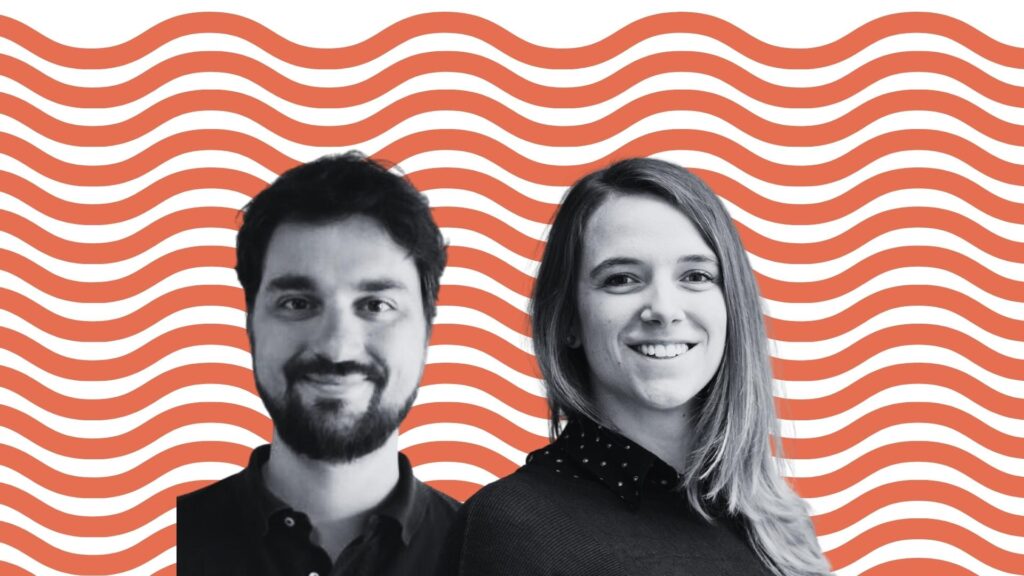
The “Let’s discover the Project Consortium” blog series will serve as a space where to present experts and researchers working on the ToBe project.
The protagonist of the publication is the Institut Catholique des Hautes Études Commerciales, a Brussels-based management school, constituting the economic category of the “Haute École ICHEC – ECAM – ISFSC”. ICHEC offers university-level management training programs in both daytime and evening courses, in both initial and continuing education.
Fanny Dethier and Phillipe Roman replied to some question presenting their company’s involvement within the project. Read more about them below!
With regard to their organisation involvement in sustainable wellbeing, Fanny stressed that “At ICHEC, we are aware that as a Management School, we have the responsibility to train and educate tomorrow’s managers and entrepreneurs. Our long tradition of openness to social responsibility, sustainable development and equity in North-South relations is now institutionalized in a strong strategic sustainability plan coordinated by the “ICHEC Durable” working group. More than ever, we are mobilized to ensure that our commitments flourish and grow towards ever greater sustainability within our educational processes, our institutional policies, our partnerships, our governance and our research projects. In that sense, the research center of ICHEC aligns its vision to ICHEC’s and contributes to ICHEC’s sustainability strategy. This is reflected in the research center’s general orientations as well as in our intellectual contributions, almost a third of which aim to address issues related to sustainable development goals. More particularly, expertise of some ICHEC colleagues regarding beyond GDP indicators in the postgrowth paradigm naturally guided us in getting involved in the ToBe project.”
“ICHEC is very active on sustainable development. I would add the now traditional annual “sustainability challenge” that puts dozens of students to work with the help of teachers to solve entrepreneurial challenges related to improvements toward strong sustainability. I would also like to add a noticeable move that ICHEC recently took: the adoption of a new transformative vision for the institution, which states: “We want to create new narratives allowing us to imagine, design and manage resilient organizations that serve peaceful coexistence, social justice and ecological regeneration, here and elsewhere. We are taking up the challenge of in-depth transformation towards a socio-economic system respectful of the planetary boundaries, by actors who are aware that they belong to the Living World.” added Phillipe.
Fanny’s and Phillipe’s expectations from this project are very clear: “We anticipate that ToBe will provide a wealth of knowledge and expertise on exceptionally focused subjects that are of first importance in considering the complexities of a postgrowth era. Although the project covers a wide spectrum of relevant topics, it maintains a remarkable level of precision and depth in addressing them. Furthermore, the diverse expertise possessed by the consortium members provides a robust foundation for making significant contributions in knowledge to facilitate the transition of European societies toward greater sustainable well-being. Nonetheless, it is important to acknowledge that substantial challenges lie ahead, particularly in the process of translating this knowledge into practical and suitable recommendations for the European Union.” And also “We expect the creation of robust integrated knowledge across disciplines and domains of knowledge and action. The breadth of expertise and approaches in ToBe is exceptionally exciting. We would love to learn more about macroecological economic models as well as about transformative post-growth initiatives case studies and to explore the linkages with our collective choice of beyond-GDP indicators. The ambition and breadth of topics covered in ToBe is clearly challenging. It is a tough task to be able to communicate across domains and disciplines, but there is a collective effort to go forward.”
As per their interests, other than ToBe , that should enrich their experience in the project, on one hand Fanny stated that “Recently, I have had to opportunity to work on the downscaling of Doughnut Economics to design a data portrait relevant for the Brussels Capital Region. This portrait aims to provide invaluable insights into the Brussels Capital-Region’s transition journey towards a safe and just space for humanity. This has been a practical experience of the development of sustainable wellbeing indicators. My involvement in this project helped me to understand common challenges beyond GDP indicators are confronted with when they aim to become influential. In that sense, I consider the Brussels Donut Portrait to be a concrete example of transformative indicators, which are the research object of our task within ToBe.”; while on the other hand Phillipe maintained as follows: “I have contributed to the development of a Doughnut approach to the economy of Brussels, in collaboration with Fanny among other colleagues. I think it can really feed into thinking around beyond GDP indicators as well as post-growth and green growth initiatives.”.
Stay tuned to the other project partners presentations!